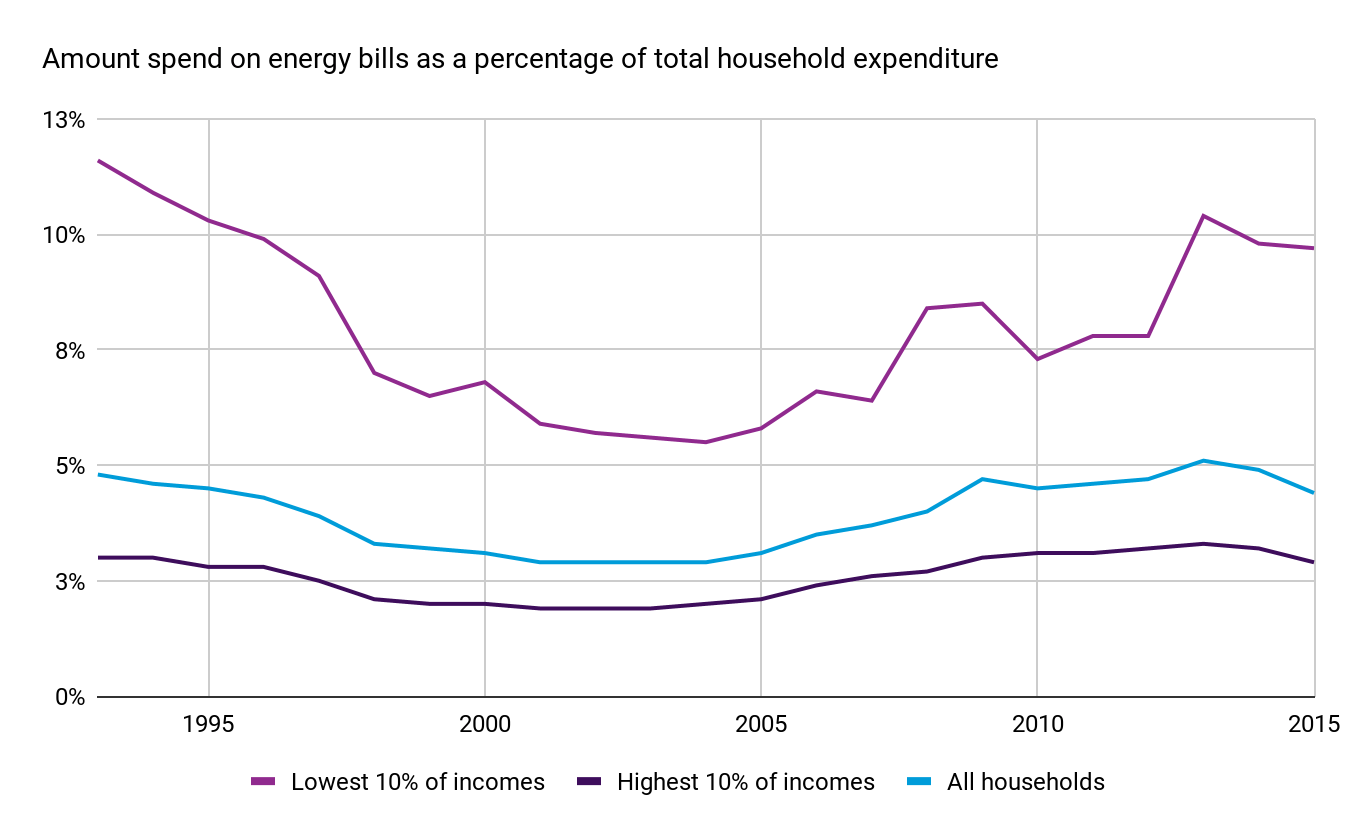
Merlyn Holkar, Research Officer, Money and Mental Health
The safeguard tariff - automatic discounts for vulnerable consumers
We’re well into 2018 now, but some things never change. The price of energy bills is back in the news. The energy regulator, Ofgem, and the Government have both been consulting on a proposal to transfer customers who receive state benefits to a “safeguard tariff”, cheaper than the expensive default deals that many of us are currently are stuck on. This is the latest in a series of measures designed to protect those who may be vulnerable from expensive bills, but it has caught the eye for extending the use of data sharing between Government and energy companies, in order to identify customers in need of support.
What's going wrong in the energy market?
Research by the CMA, and others, shows that the energy market isn’t working well for all consumers. It shows that many vulnerable consumers, in particular, are disengaged from the market and pay over the odds to heat and light their homes. Some have described this as a ‘two tier’ market, as some consumers benefit from competitive rates and improved service, whilst others seem trapped on expensive deals. Ofgem statistics show that low income households have become particularly squeezed, spending a significant and rising proportion of their income on energy bills.

Money and Mental Health research shows that people with mental health problems, who are more likely to be living on low incomes, can experience a range of difficulties which can make it harder for them to get a good deal in the energy market. Two contributing factors include:
- Disengagement – Most people with mental health problems understand that switching is the key to getting a good deal, but this can be practically or psychologically too difficult for many people when they’re unwell. Others don’t switch because of anxiety, for instance worrying they’ll make the wrong choice or fearing some unexpected penalty for switching.
- Difficulties comparing options – Mental health problems can affect cognitive processes such as working memory and attention switching ability, which we use to weigh up different options. As a result, people with mental health problems may struggle to compare complex tariffs across multiple providers. This means that market engagement can seem practically too difficult, even for those who are able to try.
These difficulties can have a profound impact. Across the country people with mental health problems are at least three times as likely to be behind on energy bills as those without, and many resort to drastically cutting back on energy usage to keep the bills down.
“I practically freeze in winter and never turn on lights for fear of bills I may not be able to meet.”
So what’s being done about this?
Ofgem is working on a range of measures to make it easier for people to understand and engage in the energy market. It has also introduced price protection for around four million prepayment meter customers, and recently extended this protection to a million more vulnerable customers.
Ofgem have now announced that they’d like to extend this protection to around two million more people by next winter. Under the new proposal, price protection would be automatically extended to anybody on an expensive default tariff who also receives a income-related benefit, such as JSA, or a disability-related benefit, such as PIP. This would rely on data-sharing between DWP and energy companies. The proposal suggests that price protection could also be extended to consumers who aren’t on benefits, but have a debt problem or are signed up to a Priority Services Register.
A real strength of Ofgem’s latest proposal is that it takes some of the onus off the consumer to apply for discounts. This would make a particular difference for many people with mental health problems, who often don’t receive additional support they are entitled to because disclosing information about their problems is embarrassing or difficult.
Some will bristle at the very mention of data-sharing, and it’s right that we should be careful when handling such highly sensitive information. However many fears are well addressed under the new proposal. Specific details, such as which benefit a customer is receiving or why, wouldn’t be shared with energy companies, and they’d be banned from using this benefits information for any other purposes, or from sharing it with other organisations. It’s fair to say that there’s a clear focus on protecting sensitive personal information, and we’ll be keen to ensure that this is maintained.
The energy market isn’t currently working well for consumers with mental health problems, so we welcome these proposals for price protection, particularly at a time when bills are rising. In the long run, we encourage Ofgem to tackle systematic disadvantage by reducing the amount of consumer legwork required to get a fair deal on an essential service, for example by exploring how automatic comparison and switching tools can best serve vulnerable customers. Such measures could benefit all consumers with mental health problems, including those who aren’t in receipt of state benefits.
